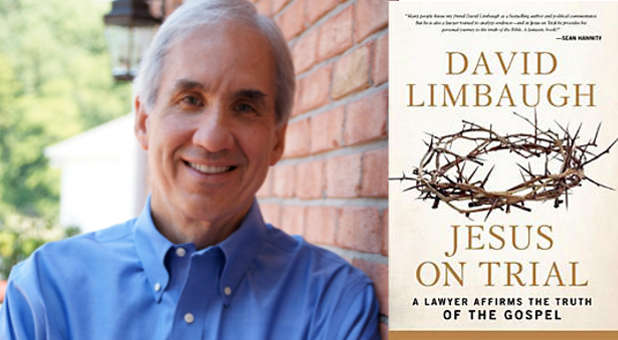The Wisdom Chronicle
The Wisdom Chronicle is designed to bring nuggets of wisdom from the dozens of books I read every year. I endeavor to share the best of what I have gleaned. The determination of relevance lies with you. Blessings, Jim Whiddon
281. FAITH-BASED “Faith in mankind is harder to sustain than faith in God. Where secular organizations place their faith in the human person, religious organizations recognize that human persons—divorced from God—can never truly deal with the problems most fundamental to human society. Poverty may be alleviated, but prosperity brings its fair share of problems along with it.”
Excerpt From: Peter Greer, Chris Horst & Anna Haggard. “Mission Drift.”
282. WISDOM “One of the primary ways God protects us is through the wisdom he grants when we strive to walk in his ways. Obedience to him protects us from all kinds of dangers — not so much because he miraculously intervenes but because he doesn’t have to. Obedience sets us on a wise course.”
Excerpt From: Harris, Raymond. “The Heart of Business.”
283. BIBLE CHANGED? When someone says that the Bible has been changed by men over the years, ask them to consider:
“How does someone remove select lines of text from tens of thousands of handwritten documents that had been circulating around the Mediterranean region for over three hundred years? This would be like trying to secretly remove a paragraph from all the copies of yesterday’s L.A. Times. It can’t be done.”
Excerpt From: Koukl, Gregory. “Tactics.” Zondervan. iBooks.
284. SIN AND ECONOMY “Sin is a constant in both Capitalism and Socialism. The difference is that in socialism, you have sin plus COERCION, with capitalism, there is sin plus FREEDOM of choice.”
— Jerry Boyer
285. WINNERS “The moderately successful person focuses on the roadblocks, on how to get over or around them. The winner focuses on the goal.”
— Tom Harrison
286. ENTITLEMENT “saying among poker players: If you’re at the table for more than half an hour and can’t tell who the sucker is, you’re it. Similarly, if you’re a college graduate in your early twenties, and you look around at your peers and can’t see a problem with a sense of entitlement, maybe you have a problem.”
Excerpt From: Murray, Charles. “The Curmudgeon’s Guide to Getting Ahead.”
287. CUSTOMERS “In the midst of a world filled with ambivalent salespeople, there is one company that has been a winner for three decades because it takes a people-centered approach to everything it does: Nordstrom. The word no never entered into their vocabulary.
When company chairman Bruce Nordstrom was asked who trains his people, his response was “their parents.”
Excerpt From: Luntz, Frank. “Win.”
288. A GREAT MARRIAGE 1. Marry someone with similar tastes and preferences. Which tastes and preferences? The ones that will affect life almost every day. It’s okay if you like the ballet and your spouse doesn’t. Reasonable people can accommodate each other on such differences. But if you dislike each other’s friends, or don’t get each other’s sense of humor, or—especially—if you have different ethical impulses, break it off and find someone else.
Personal habits that you find objectionable in each other might be deal-breakers. Jacques Barzun identified the top three as punctuality, orderliness, and thriftiness.
2. What you see is what you’re going to get. If something about your prospective spouse bothers you, but you think that you can change your beloved after you’re married, you’re wrong.
3. It is absolutely crucial that you really, really like your spouse. You hear it all the time from people who are in great marriages: “I’m married to my best friend.” They are being literal. They enjoy the day-to-day company of their spouses more than they enjoy the company of anyone else, they can talk to their spouses more openly than they can talk to anyone else, and they can be quietly companionable with their spouses as with no one else. Occasionally this kind of compatibility can develop after marriage, but it’s more common to be apparent beforehand. People often lament how hard it is to know whether one is truly in love. That’s true. But it’s not hard to know how much you like someone. Focus on that question even more than you focus on whether you’re in love. Here are two things to worry about as you do so: A) Do you sometimes pick at each other’s sore spots? You have fun together, the sex is great, but one of you is controlling, or nags the other, or won’t let a difference of opinion go. I believe that two people who love each other should be careful to avoid saying anything that will inflict hurt. Occasionally there will be an overwhelmingly compelling reason why the hurtful thing must be said. But if your prospective spouse says hurtful things heedlessly, or seems to take any pleasure whatsoever in causing hurt, break it off.
4. A good marriage is the best thing that can ever happen to you. Above all else, realize that this cliché is true. The downside risks of marrying—and they are real—are nothing compared to what you will gain from a good one.”
Excerpt From: Murray, Charles. “The Curmudgeon’s Guide to Getting Ahead.”
289. EINSTEIN “Einstein had a boyhood dream of what it would be like to ride on a light wave. Is it physically possible? Could you actually ride on a light wave? And then, years later, he comes up with his theory of relativity. He asked one question as a six-year-old—a pretty amazing question. Would it physically be possible to ride on a light wave through space? And the whole world changed because of that one question from a six-year-old.”
—JIM DAVIDSON, CO-CEO, SILVER LAKE
290. CAN’T TAKE IT WITH YOU After he died someone asked his accountant, ‘How much money did John D. Rockefeller leave?’ And the reply: ‘He left … all of it.’
— Unknown




Leave a Reply
Want to join the discussion?Feel free to contribute!